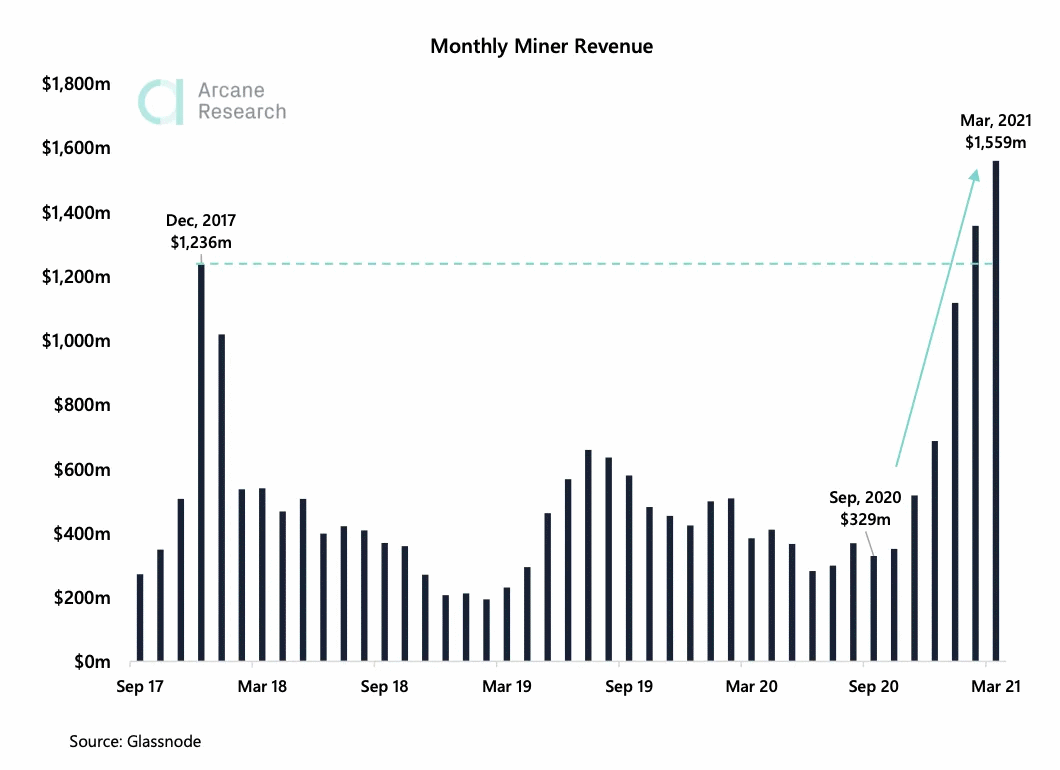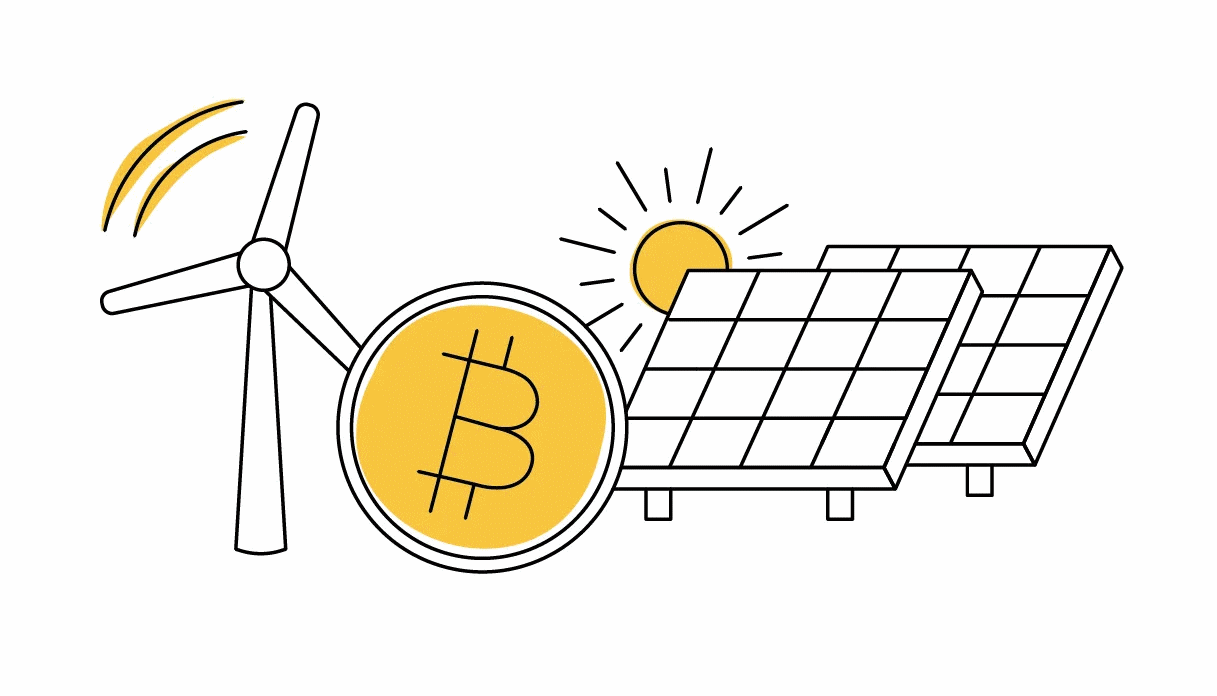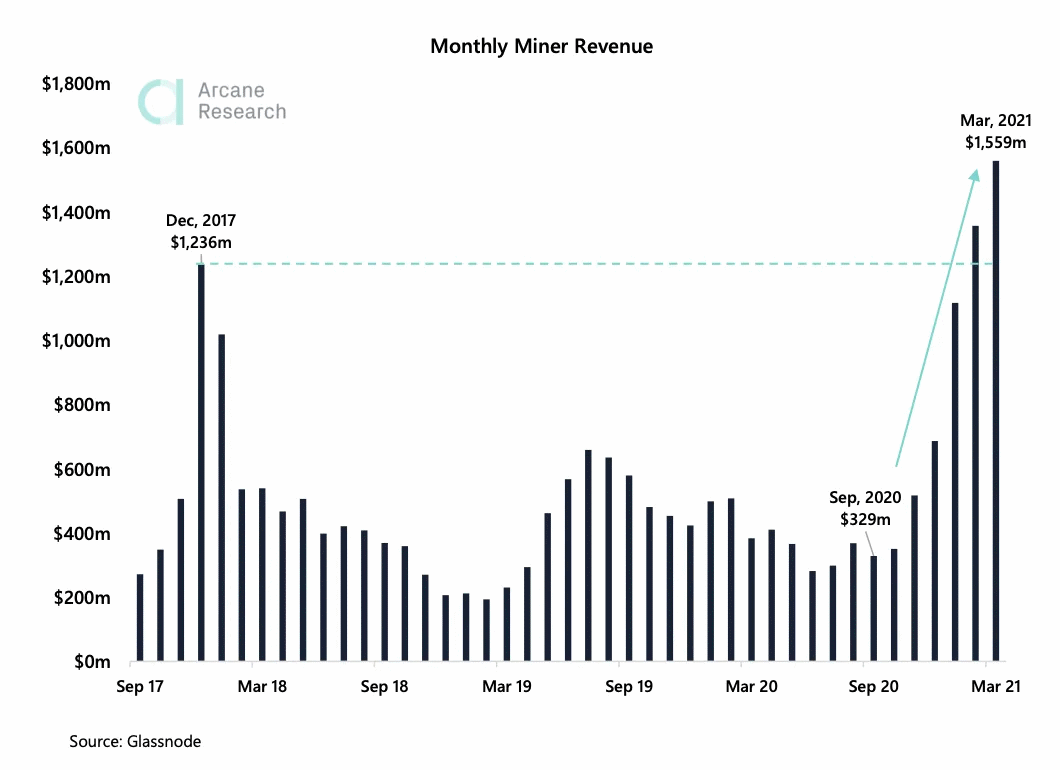IMAGE SOURCE
Two weeks after bitcoin was created, Satoshi Nakamoto wrote: “It might make sense just to get some in case it catches on. If enough people think the same way, that becomes a self fulfilling prophecy. Once it gets bootstrapped, there are so many applications if you could effortlessly pay a few cents to a website as easily as dropping coins in a vending machine.” Twelve years later, this is still the best advice you can get. Today, there are only 100 million people using bitcoin. That’s only 1.3% of the world’s population and 2% of the banked population. The numbers are still extremely small when 98% still believe and use in fiat money. People invest their money in crypto, but they can wait to turn it back into dollars, when profit targets are met. As the cost of investing in bitcoin has skyrocketed, so has the potential profit from mining it and the debate about cryptocurrency and energy consumption. Bitcoin critics often assert that bitcoin mining consumes more resources, specifically energy, than the benefits it creates. Bitcoin and decentralization is undoubtedly the future of money, but many battlefields need to be won to grow awareness and drive usage.
Cryptocurrency going mainstream is a big deal for the world of finance. Increased interest in bitcoin and ethereum are driving digital money. In April 2020, one bitcoin was worth around seven thousand dollars and today, it’s worth more than fifty thousand. Earlier this month, bitcoin hit a record high of $64,863.10 on April 14 and since its price has dropped. The high coincided with the debut of Coinbase on Nasdaq which sparked enthusiasm for all things crypto. While some investors thought the coin was overvalued, others saw the dip as an opportunity to buy some more.
In the last twelve months, market values have surged, reaching a combined value for all cryptocurrencies of $2 trillion. While consumers have driven much of crypto’s adoption in the past, this wave is broader, with interest from institutional investors and corporates as well as retail investors.
Behind the recent price drop are announcements by the Turkish central bank that it will ban crypto as a form of payment, speculation that the US Treasury is going to crack down on money laundering carried out through cryptocurrencies and China’s ban of cryptocurrency mining in Inner Mongolia, home to some of the world’s biggest crypto miners because of its cheap power.
One of the biggest criticisms about bitcoin is that mining is bad for the environment and that owning bitcoin is unethical because it ignores bitcoin’s climate-changing appetite. Mining is the process to generate new bitcoin, by solving complex mathematical equations, which require large amounts of computing power and electricity. Many people are concerned about climate change and the energy consumption of bitcoin mining.
According to the Cambridge Bitcoin Electricity Consumption Index, bitcoin-mining operations worldwide now use energy at the rate of nearly a hundred and twenty terawatt-hours per year. This is about the annual domestic electricity consumption of Sweden.
There is no question that bitcoin mining is big business. In March 2021, bitcoin miners made almost $1.5 billion in revenues, a 41% increase since January of this year.
Two weeks after bitcoin was created, Satoshi Nakamoto wrote: “It might make sense just to get some in case it catches on. If enough people think the same way, that becomes a self fulfilling prophecy. Once it gets bootstrapped, there are so many applications if you could effortlessly pay a few cents to a website as easily as dropping coins in a vending machine.” Twelve years later, this is still the best advice you can get. Today, there are only 100 million people using bitcoin. That’s only 1.3% of the world’s population and 2% of the banked population. The numbers are still extremely small when 98% still believe and use in fiat money. People invest their money in crypto, but they can wait to turn it back into dollars, when profit targets are met. As the cost of investing in bitcoin has skyrocketed, so has the potential profit from mining it and the debate about cryptocurrency and energy consumption. Bitcoin critics often assert that bitcoin mining consumes more resources, specifically energy, than the benefits it creates. Bitcoin and decentralization is undoubtedly the future of money, but many battlefields need to be won to grow awareness and drive usage.
Cryptocurrency going mainstream is a big deal for the world of finance. Increased interest in bitcoin and ethereum are driving digital money. In April 2020, one bitcoin was worth around seven thousand dollars and today, it’s worth more than fifty thousand. Earlier this month, bitcoin hit a record high of $64,863.10 on April 14 and since its price has dropped. The high coincided with the debut of Coinbase on Nasdaq which sparked enthusiasm for all things crypto. While some investors thought the coin was overvalued, others saw the dip as an opportunity to buy some more.
In the last twelve months, market values have surged, reaching a combined value for all cryptocurrencies of $2 trillion. While consumers have driven much of crypto’s adoption in the past, this wave is broader, with interest from institutional investors and corporates as well as retail investors.
Behind the recent price drop are announcements by the Turkish central bank that it will ban crypto as a form of payment, speculation that the US Treasury is going to crack down on money laundering carried out through cryptocurrencies and China’s ban of cryptocurrency mining in Inner Mongolia, home to some of the world’s biggest crypto miners because of its cheap power.
One of the biggest criticisms about bitcoin is that mining is bad for the environment and that owning bitcoin is unethical because it ignores bitcoin’s climate-changing appetite. Mining is the process to generate new bitcoin, by solving complex mathematical equations, which require large amounts of computing power and electricity. Many people are concerned about climate change and the energy consumption of bitcoin mining.
According to the Cambridge Bitcoin Electricity Consumption Index, bitcoin-mining operations worldwide now use energy at the rate of nearly a hundred and twenty terawatt-hours per year. This is about the annual domestic electricity consumption of Sweden.
There is no question that bitcoin mining is big business. In March 2021, bitcoin miners made almost $1.5 billion in revenues, a 41% increase since January of this year.

But the truth is that bitcoin mining actually offers an incredible opportunity to optimize renewable-heavy grids. A recent report published by Square, “Bitcoin is Key to an Abundant, Clean Energy Future”, argues how the Bitcoin network functions as a unique energy buyer that could enable society to deploy substantially more solar and wind generation capacity. Along with energy storage, bitcoin could facilitate a transition to a cleaner and more resilient electricity grid.
Miner installations could sit right near the renewable resource, avoiding the need to excessively beef up grids, and dynamically consume excess energy, whenever more is being produced than the non-mining market needs. This would allow the immediate monetization of energy that would otherwise be wasted, driving down overall electricity costs.
In other words, bitcoin can act as a monetary battery.
In a video recently posted on Youtube, Andreas Antonopoulos argues that energy consumption is not the same as pollution. But it’s estimated that 72% of bitcoin mining is concentrated in China, where nearly two-thirds of all electricity is generated by coal power, according to a recent Bank of America report.
Miner installations could sit right near the renewable resource, avoiding the need to excessively beef up grids, and dynamically consume excess energy, whenever more is being produced than the non-mining market needs. This would allow the immediate monetization of energy that would otherwise be wasted, driving down overall electricity costs.
In other words, bitcoin can act as a monetary battery.
In a video recently posted on Youtube, Andreas Antonopoulos argues that energy consumption is not the same as pollution. But it’s estimated that 72% of bitcoin mining is concentrated in China, where nearly two-thirds of all electricity is generated by coal power, according to a recent Bank of America report.
When we are desperately trying to find ways to reduce carbon emissions, does it make sense to be devoting a small country electricity consumption to a virtual currency?
In the early 20th century, industry leaders like Henry Ford and Thomas Edison were interested in replacing gold or the dollar with “the energy dollar” or “units of energy”. The concept was popular due to its sound money characteristics, including: a well-defined unit of account, easy measurement/not easily counterfeited, divisibility into smaller units, and fungibility. However, energy money was flawed, as it could not be transmitted or stored easily. – Dan Held, Director of Business Development
Now many things have changed.
Henry Ford’s argument about “energy money” is that, unlike gold, it cannot be controlled. Instead, every country can issue currency based on its natural wealth of energy. The value standard of this system is to apply a certain amount of energy in one hour, which is equivalent to 1 dollar. Using Ford’s standards, the current value of Bitcoin can be determined by multiplying its energy value.
The widening reach of solar, wind and storage capacity may relieve us of the need for most fossil fuels, driving greener and cheaper energy production. In a world where bitcoin and renewable energy can gradually fuse into one neutral ecosystem, we may be able to switch from a debt-based to an equity-based monetary system. The marriage of bitcoin and renewable energy, “energy money” is not only possible, but perhaps it’s the only viable way to achieve bitcoin’s value proposition, making it simpler, more sustainable and stable.
In the early 20th century, industry leaders like Henry Ford and Thomas Edison were interested in replacing gold or the dollar with “the energy dollar” or “units of energy”. The concept was popular due to its sound money characteristics, including: a well-defined unit of account, easy measurement/not easily counterfeited, divisibility into smaller units, and fungibility. However, energy money was flawed, as it could not be transmitted or stored easily. – Dan Held, Director of Business Development
Now many things have changed.
Henry Ford’s argument about “energy money” is that, unlike gold, it cannot be controlled. Instead, every country can issue currency based on its natural wealth of energy. The value standard of this system is to apply a certain amount of energy in one hour, which is equivalent to 1 dollar. Using Ford’s standards, the current value of Bitcoin can be determined by multiplying its energy value.
The widening reach of solar, wind and storage capacity may relieve us of the need for most fossil fuels, driving greener and cheaper energy production. In a world where bitcoin and renewable energy can gradually fuse into one neutral ecosystem, we may be able to switch from a debt-based to an equity-based monetary system. The marriage of bitcoin and renewable energy, “energy money” is not only possible, but perhaps it’s the only viable way to achieve bitcoin’s value proposition, making it simpler, more sustainable and stable.

Ilias Louis Hatzis
Ilias Louis Hatzis is the Founder & CEO at Mercato Blockchain Corporation AG.
Ilias Louis Hatzis is the founder and CEO at Kryptonio wallet. Create your wallet in less than a minute, without seed phrases, private keys, passwords or documents. Keep your bitcoin and digital assets always secure and recoverable: https://kryptonio.com
I have no positions or commercial relationships with the companies or people mentioned. I am not receiving compensation for this post.
Ilias Louis Hatzis is the founder and CEO at Kryptonio wallet. Create your wallet in less than a minute, without seed phrases, private keys, passwords or documents. Keep your bitcoin and digital assets always secure and recoverable: https://kryptonio.com
I have no positions or commercial relationships with the companies or people mentioned. I am not receiving compensation for this post.
Autres articles
-
Stripe et Bridge, le mariage à 1 milliard pour le meilleur des stablecoins ?
-
Tebi, la nouvelle fintech de l'ex-CTO d'Adyen lève 20 millions d'Euros
-
Nomination | Ooslo accueille Edouard Devilder en qualité d’Associé
-
Stablecoins : le point sur les réglementations selon Binance
-
Nomination | Oratio Avocats poursuit son développement à l’international avec l'arrivée de Claire Chevalier en qualité d’Associée


















